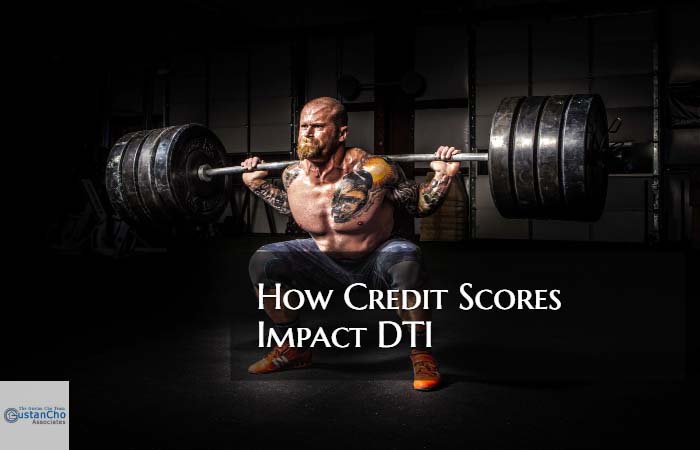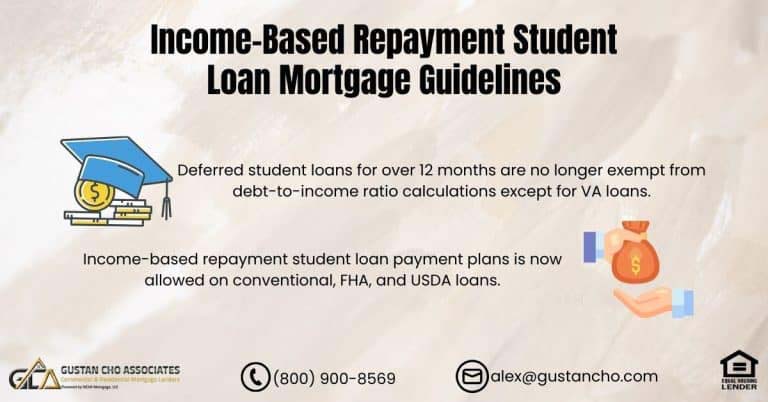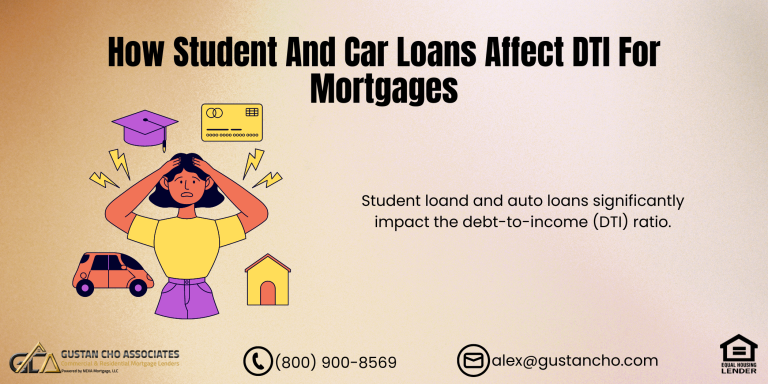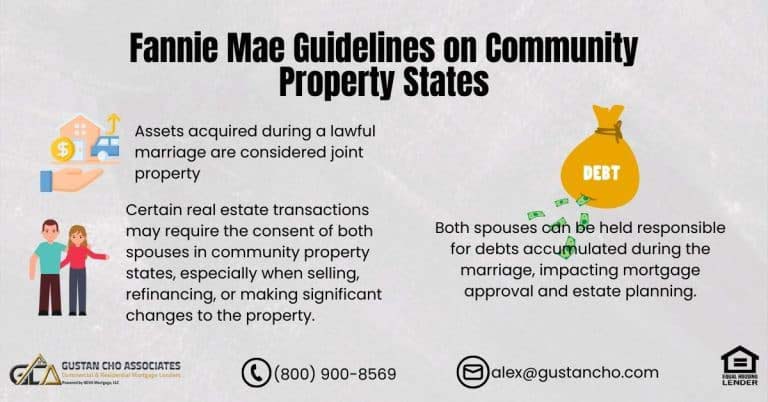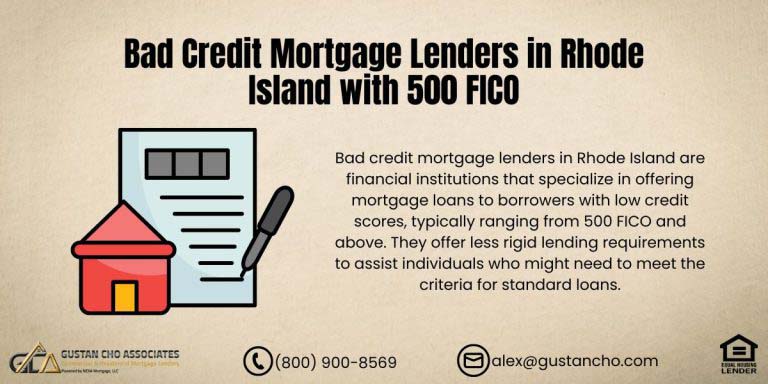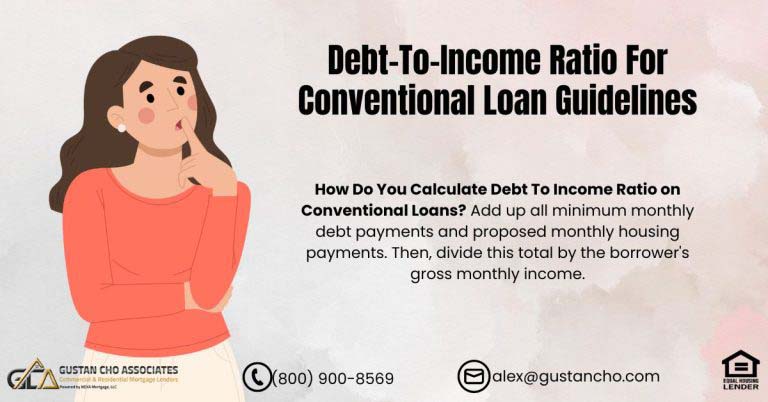This guide covers how credit scores impact DTI on FHA and Conventional loans. A person’s credit score will determine whether or not the person can qualify for a certain mortgage loan program. For example, the minimum credit score needed to qualify for a conventional loan is 620. The minimum credit score to qualify for a 3.5% down payment FHA loan is 580. John Strange, a senior mortgage loan originator at Gustan Cho Associates says the following about how credit scores impact DTI and the minimum down payment required on FHA loans:
Homebuyers can qualify for an FHA loan with a credit score down to 500 FICO. Buyers with credit scores between 500 and 579, HUD, the parent of FHA, requires buyers to put at least a 10% down payment on a purchase.
HUD, the parent of FHA, requires a minimum of a 580 credit score to qualify for a 3.5% down payment FHA loan on a home purchase. For borrowers with a 620 FICO or higher, the automated underwriting system will render an approve/eligible per AUS of 46.9% front-end and 56.9% back-end. With credit scores under 620, the AUS will normally render an approve/eligible with a lower debt-to-income ratio. In the following paragraphs, we will cover how credit scores impact DTI on FHA and Conventional loans.
How Credit Scores Impact DTI on FHA and Conventional Loans in 2025
See how credit scores shape your DTI ratio on FHA and conventional loans in 2025. Get proven tips to improve your DTI and snag better mortgage deals at Gustan Cho Associates. Ramp up your homebuying power today!
Your Credit Score Could Make or Break Your DTI Ratio
Learn how your credit score affects your debt-to-income limits on FHA and conventional loans.
What Credit Scores and DTI Mean
Your credit score gives lenders a snapshot of your financial trustworthiness. It’s calculated from your payment history, how much credit you’re using, and how well you manage debt. Scores range from 300 to 850—higher numbers translate to lower interest rates. Your debt-to-income ratio, or DTI, compares your monthly debt payments to your total monthly Income. It’s written as a percentage. A $2,000 debt and a $5,000 monthly income mean a 40% DTI. Lenders check DTI to see how much of your paycheck is going to debt, and, of course, to the new mortgage.
FHA and Conventional Loans Explained
The Federal Housing Administration backs FHA loans and is a good fit for folks with lower credit scores. You can qualify with a score as low as 500 with at least 10% down or 580 with just 3.5% down. Conventional loans, which Fannie Mae and Freddie Mac back, usually require a minimum score of 620 and have tighter guidelines. Both loan types care about DTI, but your credit score can change how lenders see that ratio. A lower score may push lenders to be more lenient on DTI, while a higher score can offer more wiggle room in the ratio itself.
How Credit Scores Impact DTI for FHA Loans
FHA loans usually let borrowers have higher debt-to-income (DTI) ratios, allowing up to 43% for housing costs (the front end) and 56.9% when counting all debts (the back end) when at least one strong compensating factor, like a good credit score, is present. If your credit score is under 620, you might have a tougher time because lenders may limit your DTI to 40% or ask for extra cash reserves. Conversely, your score is 680 or higher. In that case, you might win approval with a DTI over 50%, especially if you work with manual underwriting at Gustan Cho Associates.
To illustrate, picture a borrower with a 580 score and 50% DTI. That person may have to put down 10% of the home price. However, a borrower with a 700 score could get away with 3.5% down and a 55% DTI.
How Credit Scores Impact DTI for Conventional Loans
Conventional loans are less forgiving. They generally limit DTI for qualified mortgages (QM) to 43% or 45%. If your credit score is over 740, you may qualify for a DTI as high as 50%, especially if you have strong cash reserves or a high income. However, if your score dips below 680, your DTI may drop to 36%, or you may have to make a larger down payment. Systems like Desktop Underwriter (DU) and Loan Prospector (LP) consider your credit score a major factor and often give looser DTI rules to those with higher scores.
How Credit Scores Impact DTI: Example
- A 760 credit score might let you stretch your DTI to 45% with just 5% down, while a 640 score may force a 38% cap and a heavier 20% down payment.
Why Credit Scores Matter for DTI
Credit scores tell lenders how risky you are. A score above 720 shows you handle debt well, so lenders may relax your DTI limit. A score below 620 sends warning signals, and lenders clamp down, enforcing lower DTI ceilings to guard against defaults. For FHA loans, Gustan Cho Associates opens the door for higher DTI borrowers with lower scores through manual underwriting, which looks at rental history and job continuity. Conventional loans, however, lean on automated rules, meaning the higher your score, the more DTI room you get.
Strategies to Improve Credit Scores and DTI
- Pay Down Debt: Tame credit card balances. This will lower your DTI and lift your score since utilization works best under 30%.
- Avoid New Debt: Skip opening new credit accounts before applying.
- A fresh inquiry can ding your score.
- Timely Payments: Making every bill on time for a full year can nudge your score far and wide.
Smart Steps to Lower DTI
- Maximize Income: Proof of extra cash can quickly shrink your DTI.
- Keep records of bonuses, side jobs, or freelance Income for the last two years.
- Partner with the Pros: Gustan Cho Associates is the go-to for high DTI and low credit score cases.
- They’ll customize a plan so you can afford a home.
How Credit Scores Impact DTI: Success Stories
- FHA Win: Jane had a 590 score and 48% DTI. A bank said no, but Gustan Cho Associates dug into her 36-month rental history and got her a $250,000 FHA loan with 10% down.
- Conventional Success: Mark had a 780 score and a 47% DTI.
- His score let him push the DTI ceiling, so he closed on a $400,000 conventional loan with just 5% down.
Where the Market Is Headed
- In 2025, interest rates are trending, and lenders are extra picky.
- FHA loans still serve borrowers with scores as low as 500, while conventional loans best serve those above 700.
- Gustan Cho Associates has seen more high DTI approvals.
- Their team uses manual and non-QM loans to find solutions for borrowers with real-life budgets that don’t fit the normal mold.
Why Trust Gustan Cho Associates?
Gustan Cho Associates is your go-to for tough mortgage situations. Do you have a low credit score, a high DTI, or an income that doesn’t fit the norm? They create the right plan for you. Their knowledge spans FHA, conventional, and non-QM loans, making homeownership a real option for 2025. For a free consultation, reach them at www.gustancho.com.
How Credit Scores Impact DTI on FHA Loans
Besides credit scores, the debt to income ratio is the next most important factor in qualifying for FHA loans. There are two different types of debt-to-income ratios.
- The front-end debt to income ratios.
- The back-end debt to income ratios.
The front-end debt to income ratio is also known as the housing ratio. The housing ratio, or front end debt to income ratio, is the monthly principal, interest, taxes, and insurance divided by the borrower’s monthly gross income. For example, if the principal, interest, taxes, and insurance on a home purchase is $1,000 per month. The mortgage loan applicant makes $4,000 per month. The front-end debt to income ratio is $1,000 divided by the borrower’s gross monthly salary of $4,000 per month. This yields 25% front-end debt to income ratio. The back end debt to income ratio is calculated by the following:
- Adding the proposed housing payment ( PITI ).
Plus the borrowers all other monthly minimum payments which include the following:
- The minimum credit card payments.
- The auto loan payments.
- The student loan payments.
- The child support payments if applicable.
- The alimony payments if applicable.
- Installment payments.
- Other minimum payments
Take the above sums and dividing it by the borrower’s gross monthly income yields the back end debt to income ratio
FHA vs. Conventional: How Credit Affects DTI Rules
Get the facts on how credit scores shape your loan options—and what you can do to qualify.
How Credit Scores Impact DTI Case Scenario:
Let’s take a case scenario:
- If the mortgage loan applicant has a proposed $1,000 housing payment.
- The sum of all of the minimum monthly payments total an additional $1,000 for a total sum of $2,000 in monthly payments per month.
- The gross monthly income is $4,000 per month.
Dividing the $2,000 in monthly minimum payments by the mortgage loan applicant’s gross monthly wages of $4,000 will yield a back end debt to income ratio of 50%
How Credit Scores Impact DTI Caps
A mortgage loan applicant’s credit scores do affect the debt to income ratios allowed in mortgage qualification. The maximum front end debt DTI allowed per HUD lending guidelines is 46.9% front-end 56.9% back-end debt-to-income ratio to get an approve/eligible per AUS FINDINGS.
The maximum back end debt-to-income ratios allowed under current HUD lending guidelines is 56.9%. The 46.9% front-end maximum debt-to-income ratios and 56.9% back-end debt-to-income ratio caps are for borrowers with credit scores of at least 620 or higher to get AUS Approval. 45% debt-to-income ratio if credit scores are under 680 and 50% DTI if credit scores are higher than 680 on conventional loans.
Borrowers with credit scores lower than 620 DTI allowed per HUD Guidelines is 43% to get an approve/eligible per Automated Underwriting System. There are no exceptions to the above credit scores versus debt to income ratio requirements
Lender Overlays on Debt-to-Income Ratios
There are many lenders who implement their own debt-to-income ratio requirements above the HUD maximum lending debt to income ratio requirement. For example, borrowers with credit scores above the 620 with a 46.9% front end DTI and 56.9% back-end DTI should be eligible to get an approve/eligible per AUS. However, a particular lender may impose their own requirements, called mortgage lender overlays, where they will cap the debt-to-income ratios at 45% to 50%
Other lenders will set their own credit score minimums such as 45% debt-to-income ratio FHA loan if their credit scores are below 680. They may increase DTI caps to 56.9% back-end DTI for borrowers with higher than 680.
Yet there are other lenders, such as myself, where we have no overlays on government and conventional loans. We just go off the federal minimum HUD mortgage lending guidelines. As long as it is approved/eligible per DU FINDINGS, we just go off the DU FINDINGS or LP FINDINGS ( LP FINDINGS ARE FREDDIE MAC’S VERSION OF THE AUTOMATED UNDERWRITING SYSTEM ).
How Credit Scores Impact DTI on Conventional Loans
Unlike FHA loans, the credit scores do not have any impact on the debt-to-income ratios on Conventional loans. With Conventional Loans, the maximum debt to income cap is at 50%. However, how credit scores impact DTI on Conventional loans is with the private mortgage company insurer. In order for private mortgage insurance companies to insure up to 50% DTI, borrowers need a 700 credit score. Otherwise, PMI companies will only insure conforming borrowers up to 45% debt-to-income ratios.
Credit scores do have a huge impact on mortgage rates on conventional loans. The lower the credit score, the higher the interest rate on conforming loans.
To get the best available conforming interest rate, borrowers should have a credit score of 740 or higher. With FHA, any borrowers with a credit score of 680 will get the best available FHA interest rate. Borrowers with credit scores of 600 or lower will get higher mortgage rates on FHA loans. Although credit scores have a slight impact with FHA Loans, it is not as credit-sensitive as Conventional loans.
How Credit Scores Impact DTI: Boost Your Credit and DTI for Mortgage Wins
In 2025, your credit and DTI will play major roles in getting FHA or conventional loans. A strong score gives you higher DTI limits, better rates, and faster approvals. A low score means you’ll need a smarter plan. Focus on your credit, trim your debt, and get Gustan Cho Associates in your corner to turn hurdles into keys. Ready for your new home? Visit www.gustancho.com and let’s get started!
Do you have questions about your DTI or credit? Comment below, and don’t forget to subscribe for more homebuying tips from Gustan Cho Associates!
Struggling With DTI? Your Credit Score May Be the Key
We break down how credit scores influence DTI limits so you can plan smarter.


